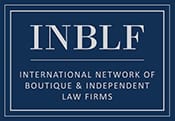Sustaining the Effort to Update Green Guides
By Eric F. Greenberg, Attorney-at-law
Years ago, when I first read about the concept of “sustainability,” I teased that it was too vague and had too many meanings to too many people to be useful. Today, I am not sure things have improved much.
Of all the various terminology packagers can use when making environment-related claims in labeling or advertising, perhaps the most slippery is “sustainable.” It’s used more and more by marketers, and I don’t think too many marketers are using the term falsely or misleadingly. The problem is that the term’s meaning is still not clearly or consistently understood by consumers.
This does not mean any company that claims its package or product is somehow “sustainable” is making a false or misleading statement. It just means the claim probably requires some explanation so consumers know exactly what the company means.
Way back in 2012, the Federal Trade Commission (FTC) specifically refrained from issuing guidance for how to use the term “sustainable” in claims. Back then it was mulling how to update its Green Guides (formally, Guides for the Use of Environmental Marketing Claims), which are its standards for substantiating claims of environmental benefits on package labels and elsewhere. It thought, based on evidence of consumer perceptions, that “the claim has no single meaning to a significant number of consumers,” and to some it conveys non-environmental characteristics, like the product is durable.
Now, the FTC’s Green Guides are getting another look, and the agency is asking for input again on what to do about “sustainable.” The Green Guides refresh is overdue: The last update to the Guides was that one in 2012.
The Green Guides were first established in 1992, and are the FTC’s attempt to help companies avoid misleading consumers when touting the environmental attributes of their packages or products. The Guides cover claims of general environmental benefit of a package or product, or that it’s recyclable, contains recycled content, or is refillable, degradable, compostable, free-of something, source-reduced, non-toxic and ozone-friendly or safe, or was made with renewable energy or materials, or was balanced by carbon offsets, or when claiming compliance with certifications or seals of approval.
Companies need to have sufficient substantiation, that is, proof, for whatever environmental claims they choose to make. FTC says that “For each claim covered, the Guides: (1) explain how reasonable consumers likely interpret it; (2) describe the basic elements necessary to substantiate it; and (3) present options for qualifications to avoid deception.” By “qualifications” they mean caveats or explanatory text that you would add to your claim to make it clearer.
So, on December 20 of last year, FTC published an invitation for new public comments, and listed 19 general topics and 12 specific ones on which they’d like to hear from you. The general topics include: The need for the Guides; their benefits to business, especially small ones; modifications needed; impact the Guides have had on the information conveyed and costs; evidence of consumer perception of and interest in environmental claims, and of the levels of industry compliance; whether there are claims covered by the Guides for which guidance isn’t needed anymore; and what claims that aren’t covered should be. They also want to hear about perceptions that the Guides overlap or conflict with other laws, regulations, or standards.
Back in 2010-12 when it last updated its Guides, FTC heard from many different folks with many different suggested approaches to the term “sustainable.” FTC thought it was clear from the comments that the term was used in association with a proliferating number of packages and products, and that it was used in a large number of different contexts, and means different things in those different contexts.
And yet, despite all that varied input, FTC said no commenters submitted evidence of consumer perceptions of what “sustainable” means, so the agency decided in 2012 that it lacked a legal basis for providing guidance about the term. That’s because its legal authority is to provide guidance based on “information about how consumers perceive terms.” Without a clear sense of how consumers perceive “sustainable,” they couldn’t provide general guidance about what kinds of substantiation for the claim would suffice.
FTC nevertheless offered some very general guidance, reminding marketers that they need to have substantiation for “consumers’ reasonable understanding of this claim” in whatever specific context it’s used, but left it up to companies to determine how much substantiation was sufficient.
Maybe the new round of public comments will offer some shape to consumers’ perceptions that can allow FTC to develop guidance. For now, though, it seems marketers still use the term to refer to many different product characteristics or manufacturing practices that they think are in some way not wasteful, are good to the Earth over time, and that make consumers feel warmly about the product or package.
Even the current Wikipedia entry on the term says “Specific definitions of sustainability are difficult to agree on….,” though it says it’s “commonly described as having three dimensions….environmental, economic, and social.” With three possible dimensions to “sustainable” in play, it’s predictable that setting standards for its meaning would be tough.
FTC’s current request for comments is your opportunity to provide input, and FTC has already extended its deadline for receiving comments to April 24, 2023. If you have ideas about how FTC is approaching “sustainable” or any other green claim, let them know. Details are in the Federal Register [Dec. 20, 2022, Vol. 87, No. 243]. PW
Eric Greenberg can be reached at [email protected]. Or visit his firm’s website at www.ericfgreenbergpc.com.
INFORMATIONAL ONLY, NOT LEGAL ADVICE.


